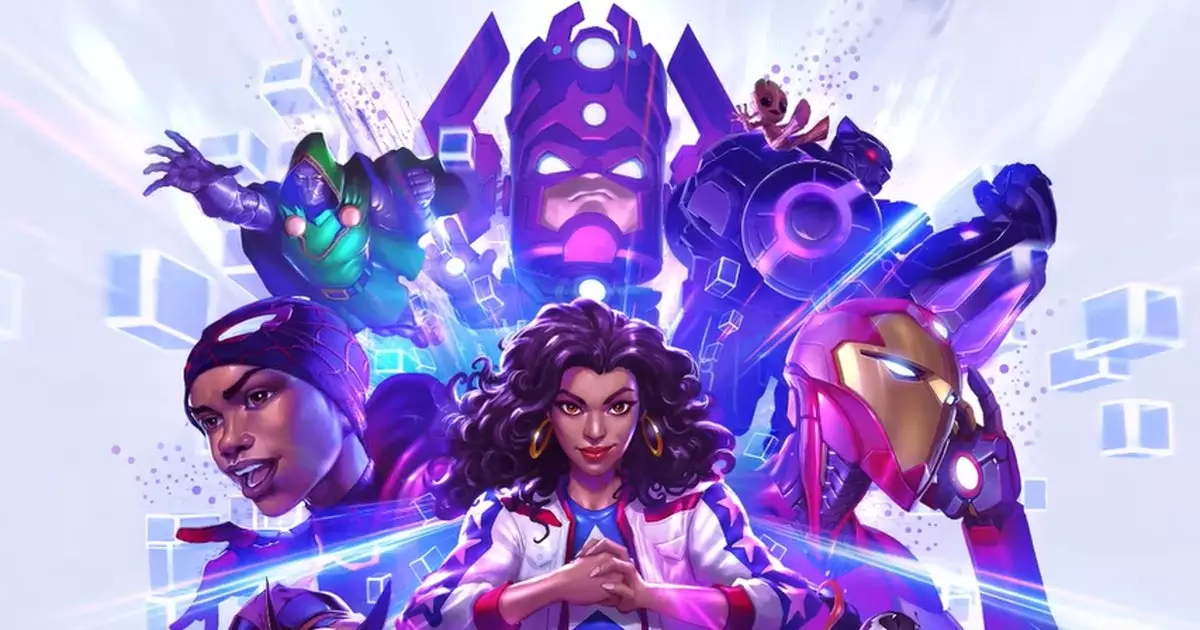The recent disruption of the superhero card game Marvel Snap in the United States serves as a poignant reminder of how governmental policies on technology and data security can directly impact the gaming industry. The game, developed by Second Dinner, saw its access abruptly cut after the U.S. government’s decision to ban or divest from ByteDance, the Chinese parent company of various popular online platforms, including TikTok. This incident shines a light not only on the complexities of international business in the tech realm but also on the broader implications for consumers and developers alike.
The U.S. government’s relationship with ByteDance has been fraught with tension, primarily stemmed from concerns over national security. Lawmakers believe that the data harvested from U.S. citizens through services like TikTok could be exploited by the Chinese government. TikTok, boasting a staggering 170 million users in the U.S., has had to defend itself against these allegations, claiming that user data is stored securely outside of China. Nevertheless, the legislative body has taken definitive steps to mitigate perceived risks, culminating in a Congressional bill that mandated ByteDance to divest from TikTok to maintain its access to the American market.
This geopolitical struggle is emblematic of a changing landscape where digital platforms no longer operate merely as entertainment venues; they are now enmeshed in the political discourse of privacy, data collection, and national integrity. For gaming companies with ties to affected entities, like Second Dinner with their affiliation to Nuverse (a ByteDance subsidiary), the fallout can be immediate and severe.
On January 18th, players in the U.S. found themselves unable to access Marvel Snap without any prior warning. Initial reports indicated complications in logging in through Steam, despite the game still being listed there. Second Dinner quickly issued statements, acknowledging the situation and assuring players that efforts were underway to restore functionality within 24 hours. This swift response demonstrates the company’s commitment to their user base and highlights the operational challenges developers face when external forces intervene.
While it’s heartening to hear that Second Dinner is working tirelessly to resolve the issue, the fact that other titles from Nuverse like Ragnarok X: 3rd Anniversary remained available raises questions. Was the loss of Marvel Snap part of an administrative mishap tied to the TikTok ban rather than a deliberate punitive action? The uncertainty surrounding these restrictions showcases how convoluted relationships between gaming companies and their international backers can lead to such disruptions.
The shutdown of Marvel Snap prompts concerns about the long-term implications of government policies on gaming and entertainment. While the industry continues to grow exponentially, incidents like these could deter investment and innovation, creating an atmosphere of hesitation akin to that seen in other sectors affected by international tensions. Developers may become increasingly cautious about entering into partnerships with companies that could be susceptible to geopolitical issues.
Moreover, the potential for consumer backlash cannot be overlooked. Gamers invest not only time but also emotional energy into the titles they love. Abrupt interruptions can lead to frustration and damage the reputation of brands that may have previously garnered goodwill. More than just a mere inconvenience, these moments could shape consumer loyalty and preferences in ways that are difficult to reverse.
As the gaming industry evolves within a politically charged atmosphere, both developers and players need to be cognizant of the broader context in which their favorite titles operate. The incident that caused Marvel Snap’s temporary withdrawal from the U.S. market serves as a microcosm of an increasingly interconnected and contentious landscape of technology. For companies like Second Dinner, agility and responsiveness will be key in not only navigating these disruptions but also in sustaining their community’s trust and engagement. For players, remaining engaged through alternative means until normal access resumes may help bridge the gap created by governmental actions, keeping the spirit of gaming alive amidst the uncertainties of the modern digital age.

